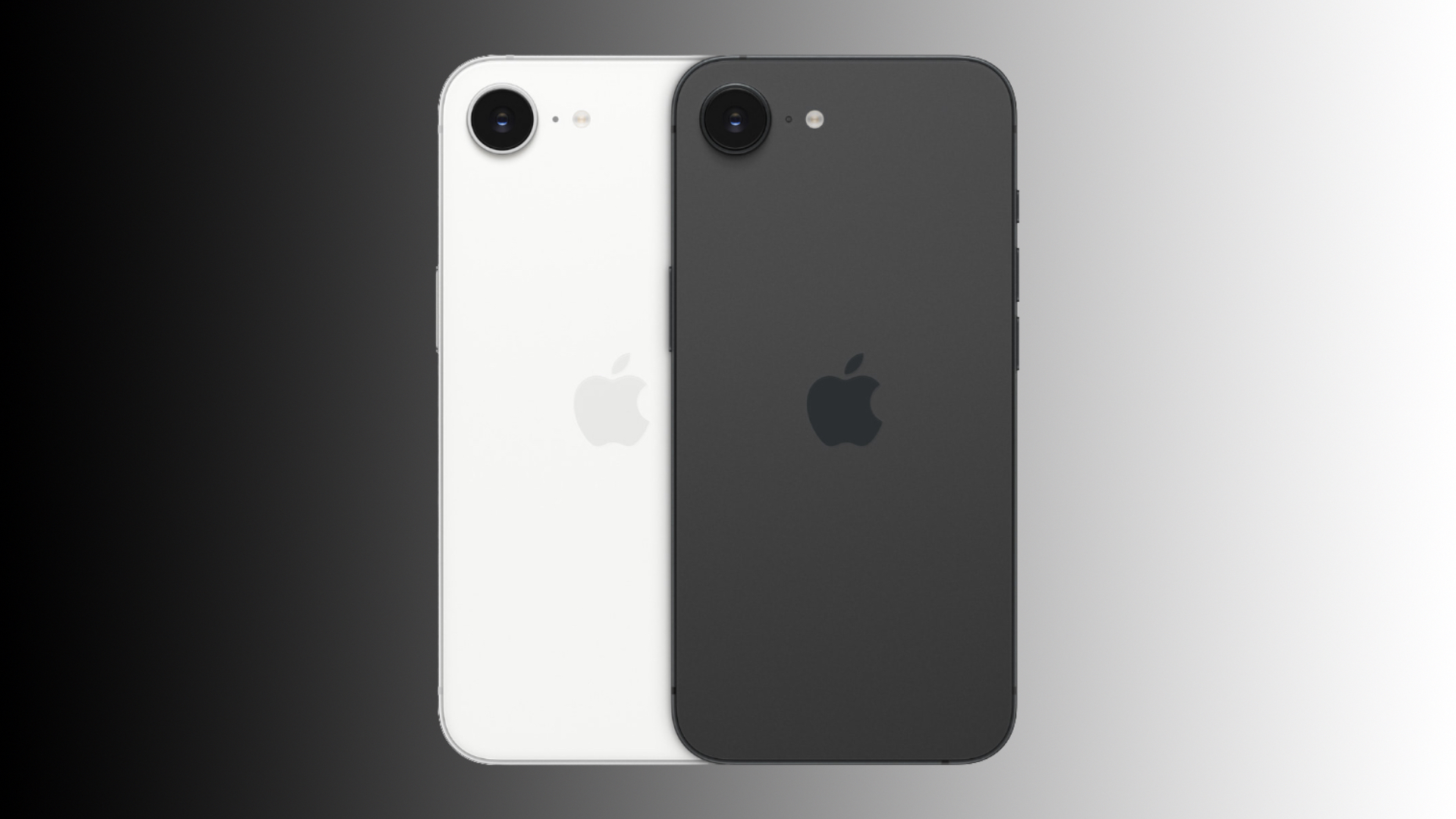Apple's C1 modem in the iPhone 16e is proof that we don't need Qualcomm for 5G
Samsung and Google should take notes.

Update (Feb. 19, 3:20 p.m. ET): Added statement from Qualcomm spokesperson.
What you need to know
- Apple today announced the iPhone 16e, a $599 midrange smartphone with an A18 system-on-a-chip and an Apple C1 modem.
- The C1 modem is the first-ever Apple 5G modem, which required years of research and development — plus a big acquisition — to complete.
- What does this mean for Android? It's proof that if Google and Samsung make in-house modems and SoCs well enough, they can ditch Qualcomm entirely for better performance and efficiency.
Apple today announced the iPhone 16e, a $599 spiritual successor to the iPhone SE with a 6.1-inch screen and an A18 chip. There's a lot to like about this midrange smartphone, and it has the potential to shake up the market — potentially disrupting phones like the Google Pixel 8a and the OnePlus 13R. However, Android users should only be worried about one iPhone 16e specification, and that's the Apple C1 modem.
5G modems are one of the rare mobile device components that only a few companies on the planet have created with success. Qualcomm, MediaTek, Samsung, and Huawei are a few of them, and that's basically the end of the list. The iPhone 16e represents a breakthrough for Apple because it's the first device to use an Apple-designed modem, called the C1.
Just like how Apple developed its own in-house silicon and phased out Intel for its Mac processors, you can expect future iPhones to eventually use Apple C-series modems exclusively. The company told Reuters that Apple will roll out its own modems across all of its products, though the exact timeline for that rollout is unclear.
The iPhone 16 and iPhone 16 Pro lineups use Qualcomm modems, which have, to date, been faster and more reliable than anything Apple has been able to develop on its own. For $1 billion, the company bought "the majority" of Intel's modem business in 2019. It wanted to make its own modems, but as of 2023, a Wall Street Journal report detailed Apple's struggles — and thus we got iPhones with Qualcomm modems for two more years.
Now, it seems the company is finally on the right track to ditch Qualcomm in favor of its own 5G hardware. The Apple C1 chip features a baseband modem fabricated using the 4-nanometer process and a 7nm transceiver, per Reuters. It lacks millimeter-wave 5G support, but Apple says it offers "industry-leading efficiency" that leads to better battery life.
Meanwhile, Qualcomm believes it's still the industry leader in cellular technologies.
Be an expert in 5 minutes
Get the latest news from Android Central, your trusted companion in the world of Android
"The best commercial smartphones currently feature our leading 5G-Advanced modem-RF system, which uses AI to optimize for the fastest and highest-capacity networks in every country," a Qualcomm spokesperson told Android Central. "We'll soon be unveiling the future of connectivity at MWC Barcelona."
Apple has no plans to sell C-series modems externally, and that's unlikely to change. So, why should Android fans care? The iPhone 16e and the C1 modem matter because they outline the blueprint for large Android OEMs to ditch Qualcomm themselves for their own in-house chips. Following the precedent Apple just set, it's possible that one day we could see Samsung use Exynos chips for both mobile processors and modems, which would be huge for the Android market.

Apple's reasons for using its own C-series modems are quite clear. For one, they're likely cheaper. Apple spent a billion dollars buying part of Intel's 5G business and maybe more on research and development, but it also pays a fortune to Qualcomm for the licensing of its technologies and the use of its modems. Based on napkin math and build-of-materials estimates from WCCF Tech, Apple could pay Qualcomm over $2.5 billion dollars if it meets its sales targets for the iPhone 16 lineup.
Aside from cash considerations, in-house modems allow Apple to tightly integrate its modems, processors, and software for greater efficiency.
Android phones could use a lower BOM and more efficiency, too
The good news? There's absolutely no reason why Android phones from Samsung or Google couldn't also benefit from a lower build-of-materials cost and greater efficiency. If one of those companies managed to build an SoC and modem good enough, it could leave Qualcomm behind once and for all — result in Android phones with better battery life and potentially a lower price tag.
Android phones are a bit trickier than iPhones, because modems are typically integrated at the SoC level. For instance, because the Samsung Galaxy S25 uses the Qualcomm Snapdragon 8 Elite for Galaxy chipset, it also uses a Qualcomm modem. Apple and Samsung would both love to use their own in-house modems, but they're working in reverse. Apple made its processors first, then worked on modems. By comparison, Samsung already has the Exynos Modem 5400 ready — it's inside the Google Pixel 9 series — but it can't quite get its Exynos processors up to par.
Apple's strategy is simple. Start with cheaper, lower-stakes phones to iron out any potential issues with the Apple C1 modem without tweaking flagship iPhones before its 5G technology is ready for primetime. And in a way, Samsung is already employing this strategy. Plenty of Samsung devices already use Exynos processors and modems as the company desperately tries to ramp up its chipmaking quality.
All that's left is for Samsung to make an Exynos chip that can go toe-to-toe with Qualcomm's best. When it does, Samsung will be able to leave Qualcomm behind, having near complete control over the processors, modems, and software in its devices for peak efficiency.
Apple is officially proof that it's possible. However, if recent yield estimates for Exynos chips are any indication, Samsung has a long way to go.

Brady is a tech journalist for Android Central, with a focus on news, phones, tablets, audio, wearables, and software. He has spent the last three years reporting and commenting on all things related to consumer technology for various publications. Brady graduated from St. John's University with a bachelor's degree in journalism. His work has been published in XDA, Android Police, Tech Advisor, iMore, Screen Rant, and Android Headlines. When he isn't experimenting with the latest tech, you can find Brady running or watching Big East basketball.
You must confirm your public display name before commenting
Please logout and then login again, you will then be prompted to enter your display name.
